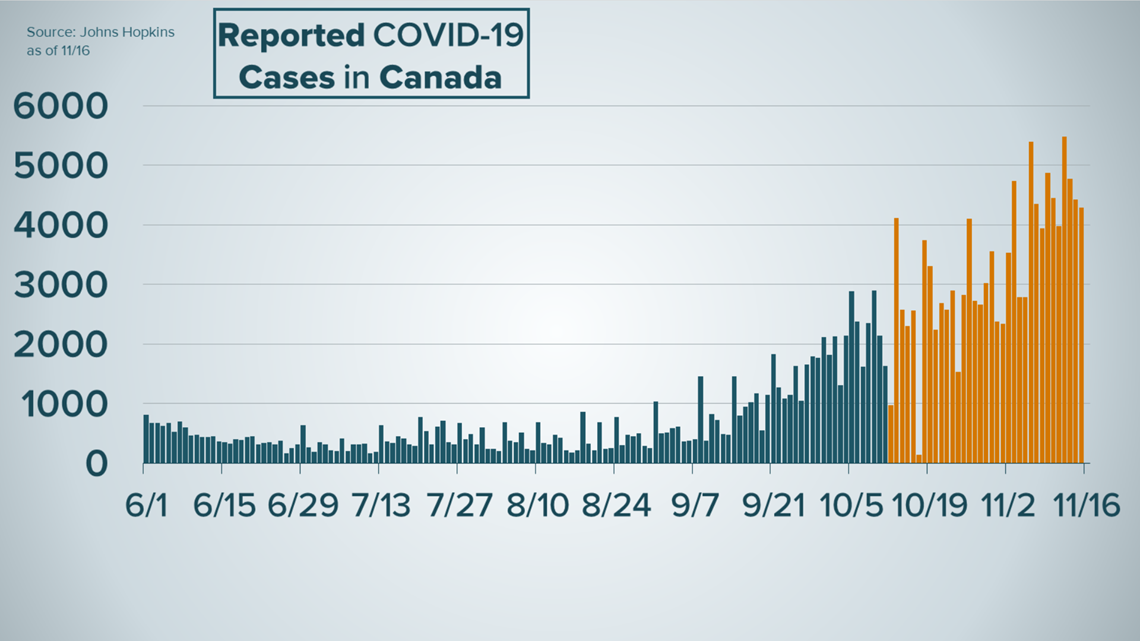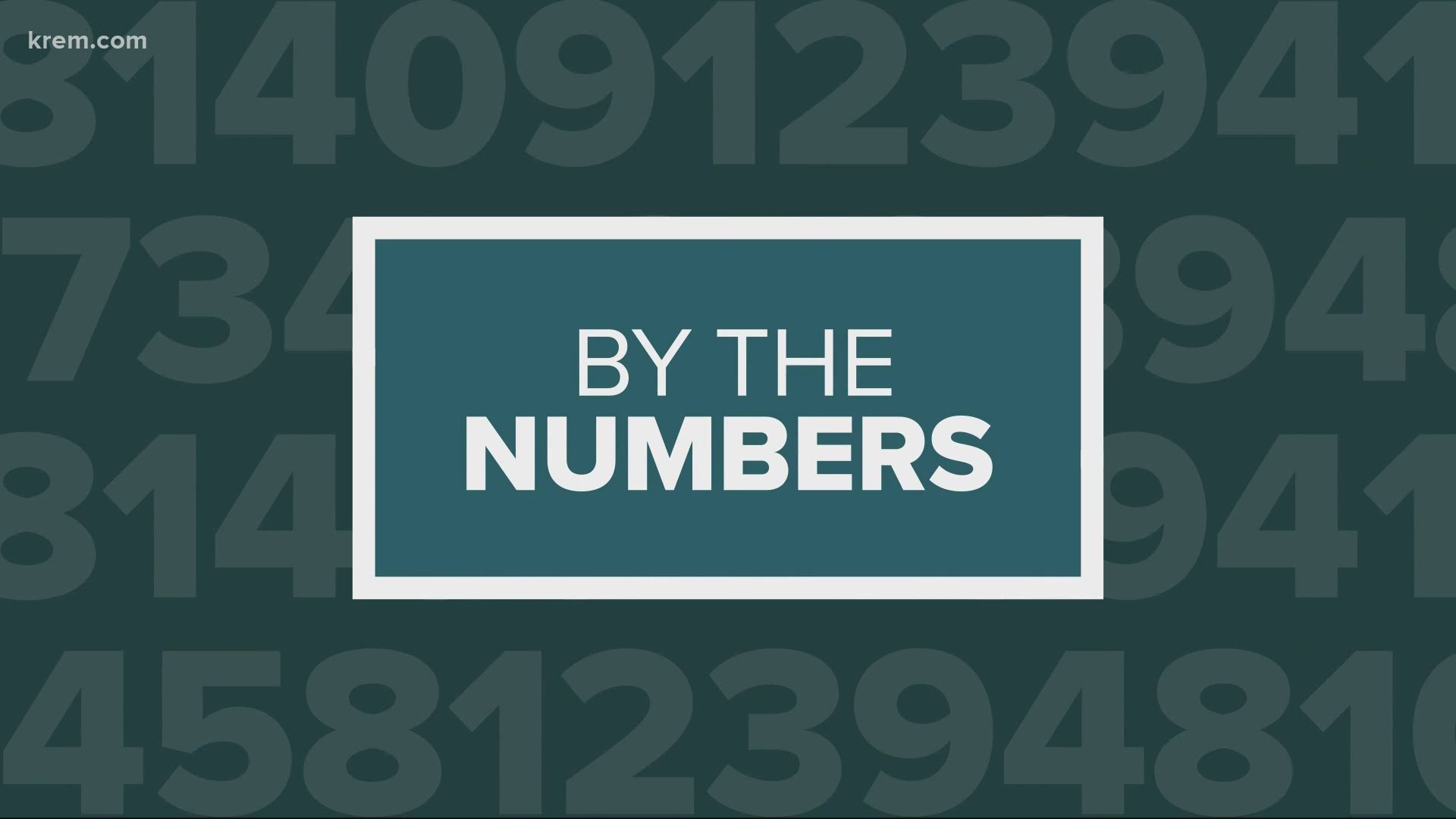SPOKANE, Wash. — As leaders in Washington state buckle down on new pandemic restrictions, many people feel like the holiday season is a well-deserved opportunity to relax, de-stress and shrug off "pandemic fatigue" with some quality family time.
Global leaders say that’s exactly the kind of mentality that needs to be avoided as COVID-19 case numbers continue to surge.
“We can very confidently assume where the risk is, based on the science of how this disease spreads,” said Governor Jay Inslee in his Sunday address. “It is most likely to be transmitted indoors, where people are not wearing masks, where they come into relatively close contact, and where they spend a good amount of time.”
As Americans prepare for a Thanksgiving celebration, a quick look up north shows Canada’s struggles with COVID-19 following the country’s Thanksgiving holiday on Oct. 12.
In the days and weeks following Canada’s Thanksgiving, coronavirus case numbers immediately started to rise.
On Oct. 13, Canada reached a new record high of single-day cases with 4,111 reported that day, according to data from Johns Hopkins University.


More than a month later, Canadian officials still struggle to contain the country’s coronavirus outbreak.
From November 12-19, Canada reported three of its five highest single-day totals in the entire year, all within the span of a week.
Case averages continue to rise every week, as health experts in the United States continue to make one final push to keep American families from facing the same results.
The Centers for Disease Control and Prevention recommended on Thursday that Americans avoid traveling for the Thanksgiving holiday.
Officials with the agency said during a press briefing that traveling could increase someone's chances of getting or spreading COVID-19. They urged that its guidance is strongly recommended, but not enforced.

